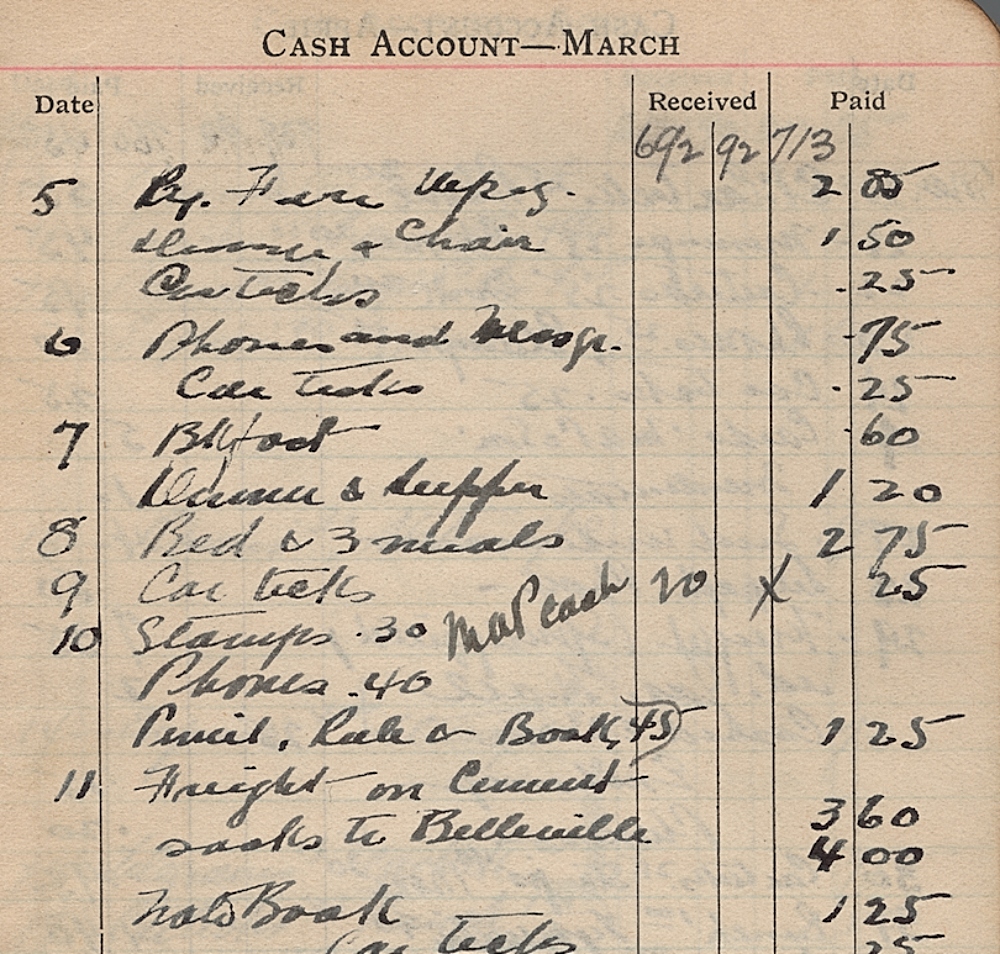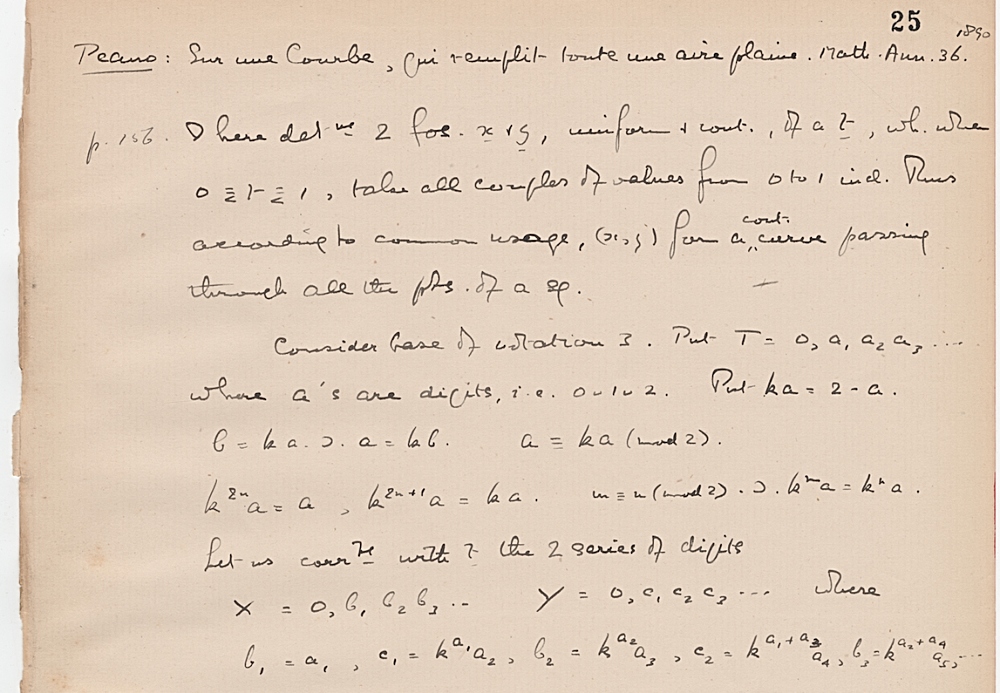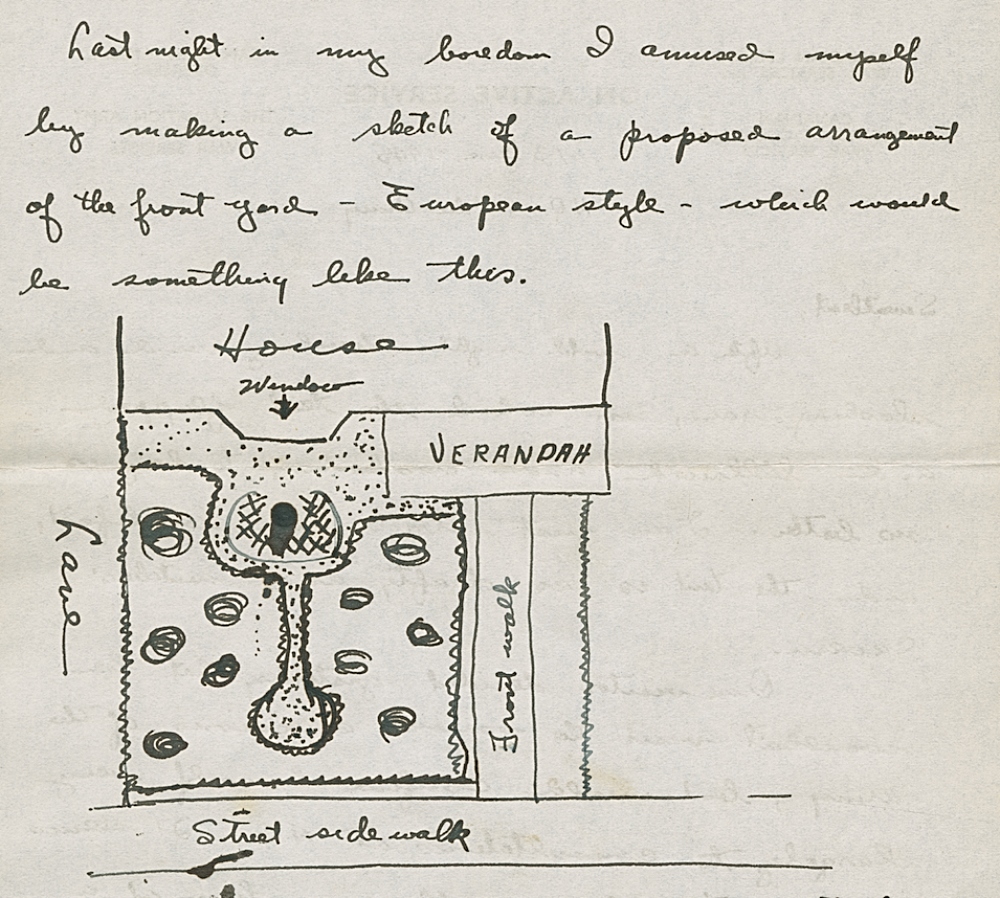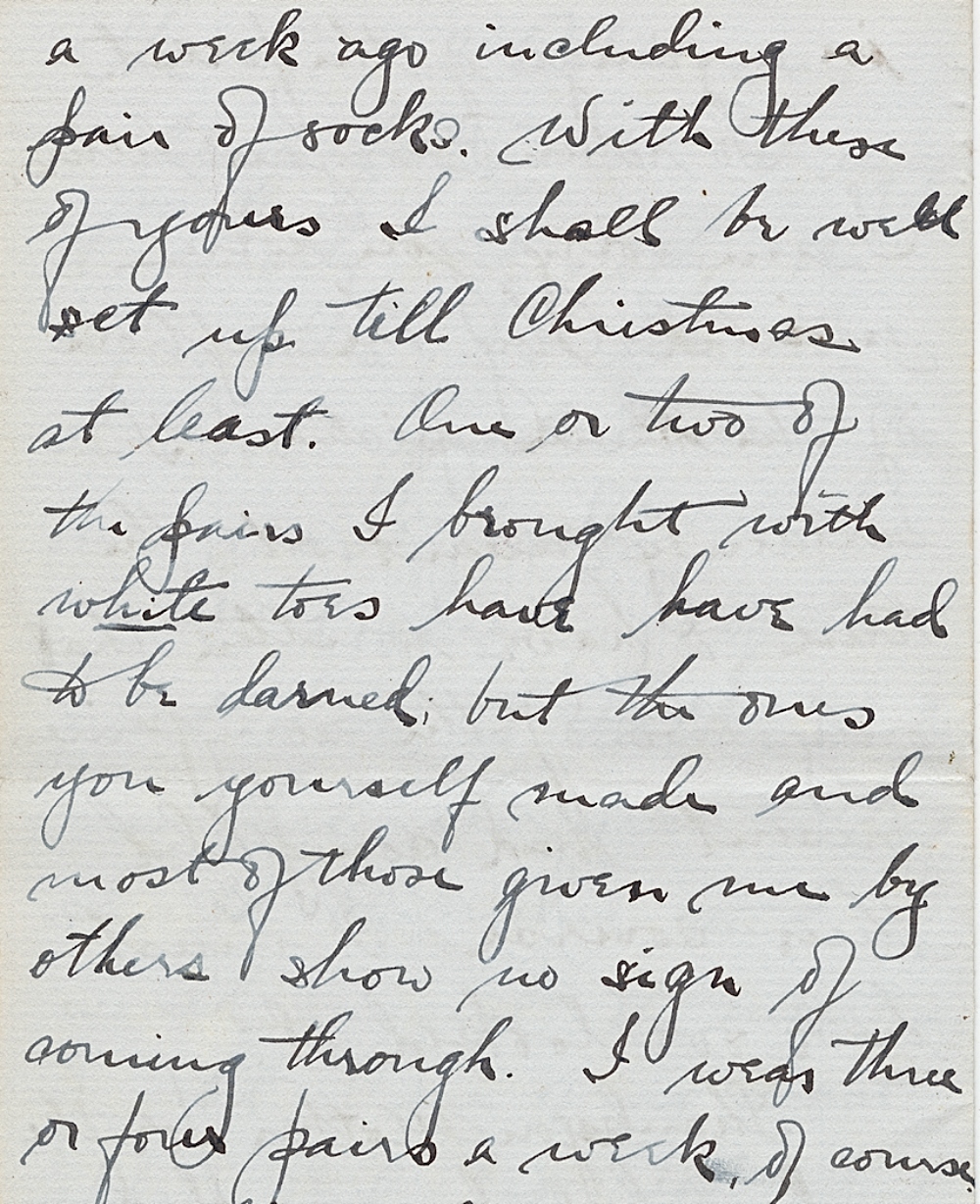Library staff, students transcribing soldiers’ letters and other archival gems
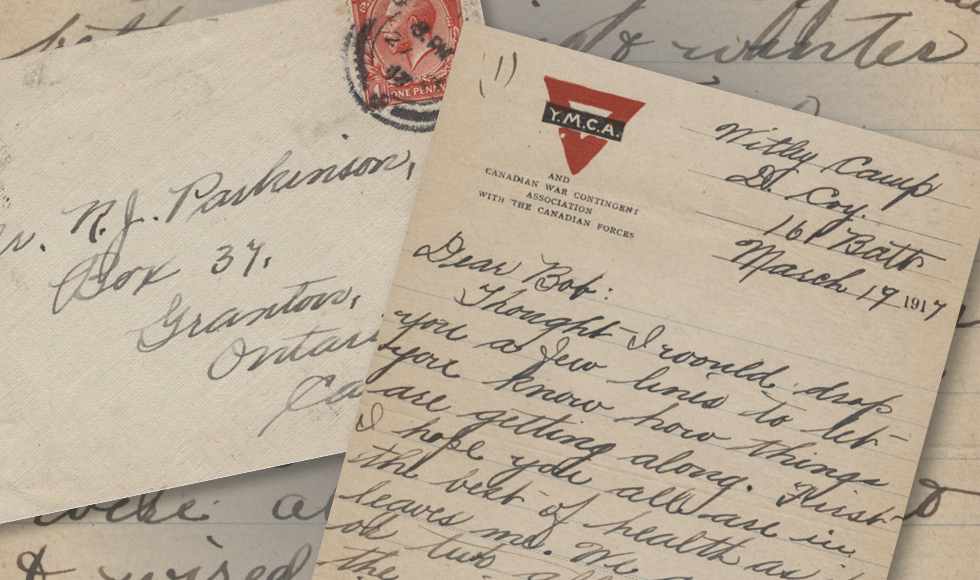
In 1917, Private Gordon Parkinson wrote home with news that he’d been quarantined due to an outbreak of mumps in camp. Now, a new transcription project is making this letter, and other historically significant items in the Library’s digital archives, easier for scholars to find and use.
BY Erica Balch
May 20, 2020
On March 19, 1917, Gordon William Parkinson, a private in the Canadian Expeditionary Forces, wrote home to his older brother Bob.
Nineteen-year old Parkinson, who was stationed in England at the time, recounted stories of daily life in camp; the warming weather, the chores, the exploits of fellow servicemen. He also described a scene which, in light of the current pandemic, might feel oddly familiar to many Canadians.
“I guess I told you we were in quarantine with mumps now,” he wrote. “One of the fellows caught them and we were all put in a hut…with wire all around. We can’t go anywhere or get our pay, but we have to go on drill everyday just as hard as anyone. It sure is some system.”
Parkinson’s letter is among the many historical gems contained in McMaster’s Digital Archive, which provides access to the Library’s digitized special collections, including archives, maps and rare books.
Now, a new transcription project is helping to make Parkinson’s letter, along with other important digitized materials from a number of the Library’s extensive archival collections, more easily accessible to researchers around the world.
Over the past two-months, dozens of Library staff and a small number of student employees — all now working from home — have transcribed thousands of pages of letters and other documents from key collections in the digital archive.
“This is the kind of project that we wouldn’t have been able to get to at any other time,” says Bridget Whittle, the digital archives librarian who co-developed the initiative.
“It’s a bit of a silver lining that with our physical spaces closed, some staff can now spend a small portion of their time on this this important project which could make a big difference for researchers.”
Whittle explains that because many of the materials in the digital archive are handwritten, with ornate or messy penmanship, with faded ink or dull pencil, it can be difficult for scholars to decipher the text. Also, since some of these documents are hundreds of pages long, reading the often dense copy can prove time consuming.
Providing transcripts can speed up the research process by allowing scholars to search by keyword or use software to perform data or text analysis on an entire document. This helps researchers find specific references more quickly and enables them to use a range of new digital tools, while making the materials easier to find online.
Krista Jamieson, the Library’s digitization manager and co-developer of the project, says the initiative has another major benefit: It’s helping to make the digital archive more accessible for those who may not otherwise be able to use these materials.
“Without transcriptions, it can be challenging for those with disabilities or those for whom English isn’t their first language,” she explains.
“It’s incredibly helpful to have a transcript as a reference that could be read from or translated, or that can be used with assistive technologies like screen readers,” she adds. “It’s something that could be invaluable for so many different people.”
Whittle and Jamieson say that, given the success of the project so far and the positive response from staff and students, they hope to continue the initiative going forward.
“Now that we have the workflow set up, it’s something that could be a standing project which would be really fabulous,” says Jamieson.
Explore some of the unique materials that are being transcribed as part of this project:
1911 Diary, March 1911 finances, Joseph M. Pigott fonds
For more than 50 years, J.M. Pigott, along with his brother, Roy, led Hamilton-based Pigott Construction to fame and fortune. Canada’s most successful privatively-owned construction firm in the post-World War Two era, Pigott Construction built many local landmarks such as Hamilton’s first skyscraper, the 16-storey Pigott Building (1930), University Hall and Hamilton Hall on McMaster’s campus and the Cathedral of Christ the King; as well as notable projects further afield like the East Wing of the Royal Ontario Museum with its stunning rotunda and the General Motors plant in Oshawa, among many, many others.
Pigott (1885–1969) kept daily journals and travel diaries throughout his life, and like any good businessman, also kept close account of his spending. In March 1911, during the building of the Battleford, Sask. post office, he records spending $2.75 on a bed and three meals, and $1.25 on a notebook, as illustrated in his ledger, pictured above.
Learn more about McMaster’s J.M. Piggot Archive
Notebook on mathematical articles, p. 27, Bertrand Russell fonds
In 1910, Cambridge University Press published the first volume of Principia Mathematica by renowned philosopher, mathematician, peace activist and Nobel laureate, Bertrand Russell and mathematician Alfred North Whitehead. It was a groundbreaking work that attempted to solve a question that had vexed philosophers and mathematicians since the time of Aristotle: what are the foundations of mathematics, arithmetic or logic?
Although Russell once joked that he knew of only six scholars who had read Principia Mathematica in its entirety, the work was nonetheless hugely influential, particularly among philosophers.
Part of the Library’s vast Bertrand Russell Archives – McMaster’s largest and most heavily-used research collection – this document contains Russell’s notes on famed Italian mathematician Giuseppe Peano, along with a number of other mathematicians. These notes ultimately formed the basis for Russell’s writing on Peano and were used by Russell in preparation for writing Principia Mathematica.
Learn more about Principia Mathematica
Stuart Ivison to Marjorie Ivison, 13 June 1945, p. 36, Stuart Ivison fonds
From 1941 to 1945, Stuart Ivison, a Baptist minister and McMaster alumnus, served as a chaplain in the Princess Patricia’s Canadian Light Infantry. He documented his experiences in detail through often poignant letters, maps, photos and other materials – a unique archive which is part of the Library’s extensive World War Two collection.
Ivison, who survived the war, wrote home regularly to his wife Marjorie and their three sons, Don, David and Duncan. In the above letter, Ivison, as a diversion, is making plans for after the war. “Last night in my boredom, I amused myself by making a sketch of a proposed arrangement of the front yard – European style – that would be something like this,” he wrote.
Learn more about the Stuart Ivison Archive
Read: “I promised him I’d come back”
10 September 1916, Letter to Parents, p. 12, Bernard Freeman Trotter fonds
This above image an excerpt of a letter written by Bernard Freeman Trotter, a McMaster Alumnus who, unable to secure a commission in the Canadian army due to ill health, was accepted instead into the British army in which he served as a second lieutenant. He made the crossing to France in December 1916 and was killed in action on May 7, 1917.
Trotter was a noted poet whose best-known work, A Canadian Twilight and Poems of War and Peace, was published after his death by McClelland & Stewart. Trotter’s letters from the front, however, often contained no poetry, focussing instead on ordinary details of life as a soldier, like in this letter, where he writes about the simple pleasure of having enough socks to wear.
